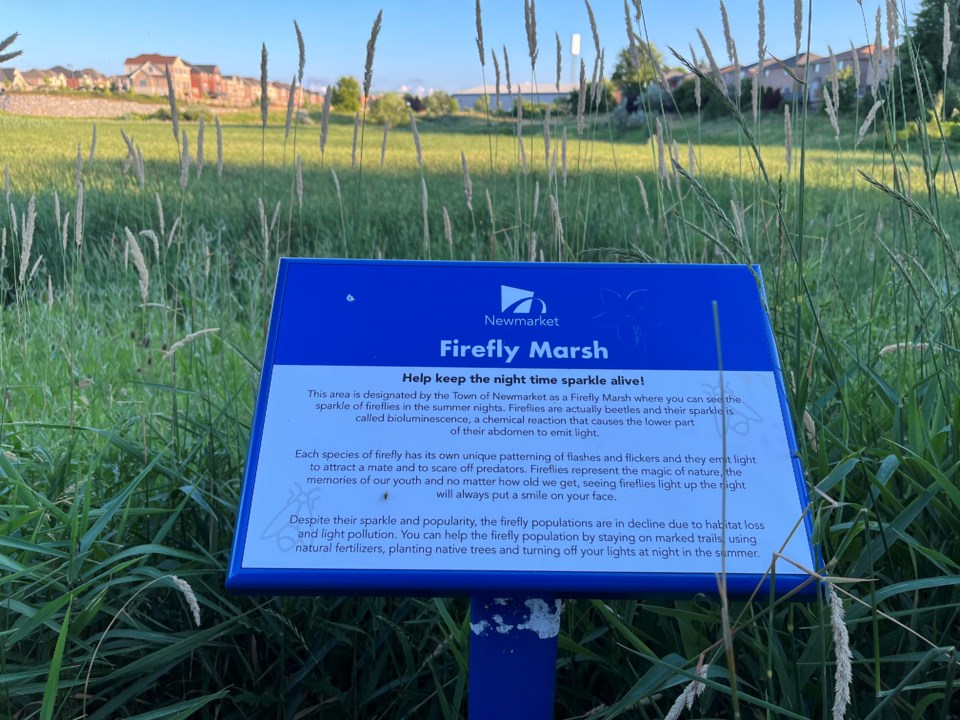Newmarket biologist Aileen Barclay enjoys summer nights among the fireflies.
Her love of the insects that populated a wetland area near her home prompted her to work with the town to get it a new name in 2021: Firefly Marsh.
But seeing more light pollution spring up around the natural area and a gradual decline in the fireflies there has made Barclay concerned.
“Little things can make a big impact on something magical,” Barclay said.
The conservationist is asking residents to be more mindful of the impact of light pollution on fireflies. The insects rely on their lights to breed and deter predators, Barclay said, but bright lights along natural areas can hinder them. She said it is likely the biggest factor for the decline she has observed there.
The lights are “how they communicate and find their mates,” Barclay said. “When they get confused with light pollution, they can’t see it.”
The non-profit invertebrate conservation organization Xerces Society has said one-third of firefly species may be at risk but there is a lack of systematic monitoring programs to properly assess several species.
But on her own walks locally at the Firefly Marsh, off Mulock Drive, Barclay said the decline has been noticeable over the past decade as more lights have come up. Environmental degradation from water runoff may also be a factor, she said.
“Everybody loves fireflies. They’re magical. I call them nature’s glitter,” she said. “I just want people to be aware … simple backyard or landscaping lighting can really impact something magical like fireflies.”
Fireflies around Newmarket
Many in Newmarket do not even realize their prevalence in town, Barclay said.
Although Firefly Marsh has become a namesake location to see the insects, she said there are multiple locations where they can be found, such as Fairy Lake and McCowan Road. Any naturalized area with a water source can become a home for the insects if you slow down and look.
But the long summer days often mean people miss them, Barclay said, with the insects’ light only visible at night.
“People forget them,” she said. “People don’t tend to walk around at 9:30 at night.”
The town’s website notes various methods to help conserve fireflies, including reducing pesticide use, planting native trees and shrubs and leaving fallen leaves on the ground through winter and spring as they are locations where fireflies and larvae hibernate.
“It’s simple things,” Barclay said. “Turn off your lights, and if you’re going to pick a tree, go for a native.”
The fireflies are beloved for good reason, Barclay said, and should be protected.
“It brings us back to our childhoods, to late nights camping. They love summer like we love summer,” Barclay said. “If you look at firefly in the light, they’re not pretty at all … but at night, all of a sudden nature is giving you a magical light show. I can’t see why anyone wouldn’t love them.”

